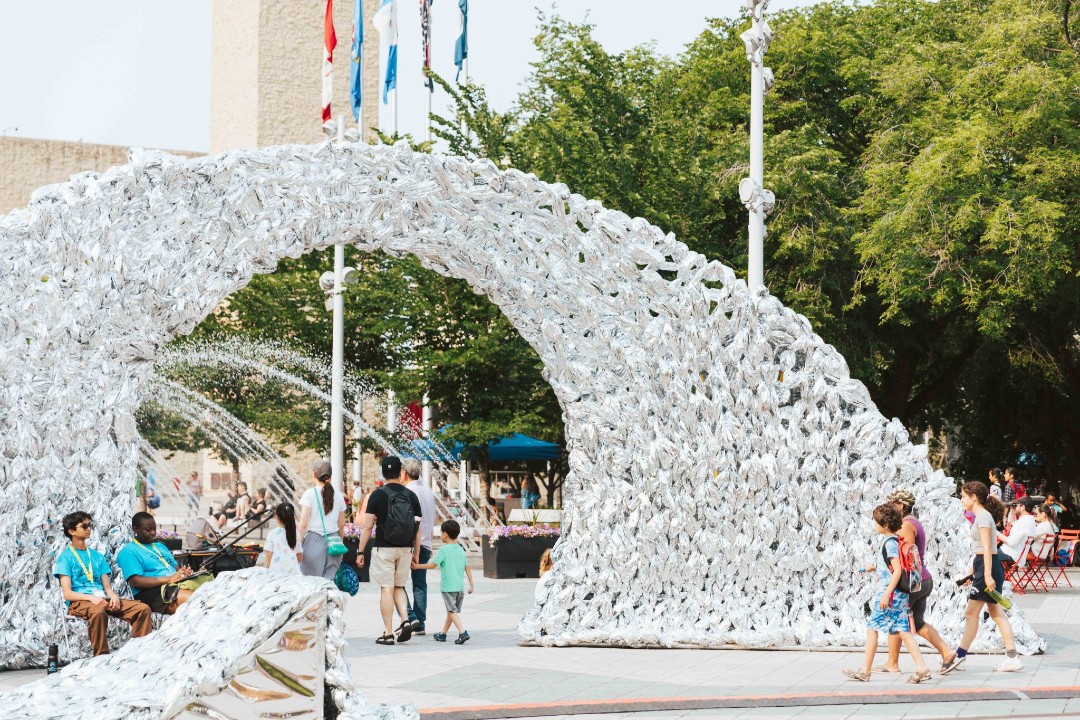The Edmonton Arts Council is pausing all new multi-year funding agreements with arts organizations for one year because its budget is stagnant and likely will remain so, its interim executive director said.
"The main thing is (that) the strategy is about maximizing the impact of our existing budget," Shirley Combden with the EAC told Taproot. "Our budget has been static for the last three years, and we know we will not be receiving an increase — or not likely to receive an increase — in our budget in the near future."
On Oct. 1, the EAC published an outline of its funding strategy changes. In force for the next three years, the changes affect EAC's granting and assessment processes by increasing focus on inclusivity and safety. The post outlines that organizations that receive EAC funding and have positive peer reviews will not experience much, if any, disruption, while those with mandates that previously received one stream of funds may be referred to another, and those with poor peer assessments may see their funding reduced or restructured.
The arts council, created by Edmonton's city council in 1996, is primarily funded by the City of Edmonton. It currently has 192 funding agreements with arts organizations, with recent funding announcements for Citadel Theatre, Arts on the Ave, and the Edmonton Symphony Orchestra.
Combden said she understands the wider context of why the organization's budget has not increased for many years. "I think (the city is) working with a limited budget, and they are doing the best they can," Combden said. "The static funding is non-ideal, and in this world, and given the economy that we live in, it isn't great."
Multi-year funding is a way to ensure consistency and allow arts organizations to employ long-term thinking. But new multi-year funding and the renewal of existing multi-year agreements is unavailable until 2026, Combden said, adding there are reasons for the change.
"We've just suspended the multi-year process for one year because we need to go through a full peer-assessment process, and by putting people into a three-year peer assessment, we would only have one year to assess them," Combden said. "I mean, you need to have more than one year to make assessments to actually … (offer) comparative information."
Funding is not the only change coming to the arts council. Combden has served as the arts council's interim director since March, when Sanjay Shahani left, but will return to her other role with the EAC later this month when Renée Williams takes over.
Williams was announced as the new, full-time executive director for the council on Nov. 4. Williams previously had leadership roles at the former Edmonton Economic Development Corporation and the Fort Edmonton Park Management Company.
Combden has worked as interim director but is primarily the associate executive director of finance, organizational effectiveness, and engagement at EAC. She took on the interim director role with no ambition for it to be permanent. "My real job is back in finance, and I'm looking forward to reverting back to doing that," she said.

As Taproot covered in our Oct. 3 Arts Roundup, the organization has re-examined its finances to prioritize organizations that offer considerate Indigenous programming and free or low-priced access to their spaces.
Combden said the arts council also wants to fund fledgling arts organizations.
"The previous granting and assessment systems were based on stability, so many organizations tended to come in and stay at a certain level," Combden said. "Especially during COVID, we ensured that stability was key, so organizations weren't looking at cuts to their funding. But the problem with that (is) it's set up and tended to reward older organizations and (has) limited the growth potential of them — even older organizations — to get future funding or new funding, and then smaller or emerging organizations sometimes weren't even given an opportunity because they had already used up our funds."
Both established and emerging arts organizations are struggling and succeeding at the same time. CO*LAB has talked about its difficulty with financial stability. The Harcourt House Artist Run Centre has raised more than $100,000 on GoFundMe towards a $3.5 million real estate bill to stay alive. Metro Cinema has sourced at least $11,000 from donors for its new sound system. The Edmonton International Fringe Theatre Festival cinched $300,000 during its Sustain Fringe campaign (partly due to $58,000 from MHCare Medical). Even CKUA relied on the public for $3 million to stay on the air. So if there's less funding for arts organizations in Edmonton, how do they stay alive?
Some don't. Gone are the days of the Pawnshop and Wunderbar. And who can forget The Artery? At least Glass Bookshop, a defunct bookseller and events space in Ritchie, ceded its spot to Magpie Books. Similarly, The Royal Bison Art and Craft Fair said goodbye and ushered in OddBird Art & Craft Market (coming up Nov. 29 to Dec. 1 and Dec. 6 to 8) to pick up the cause.
As time moves and arts organizations find success or flounder, Combden said the funding changes are modest, not revolutionary.
"We're not expecting to see a lot of changes to the grants to the organizations that have a funding history with the EAC," she said. "(If) an organization that has an issue or has been highlighted with issues or concerns, they may experience a small reduction. We are looking at any changes over a three-year period. We're not looking at implementing any major changes in year one, so to speak. Our goal is never to upset an organization."
